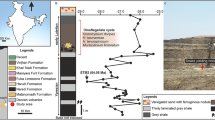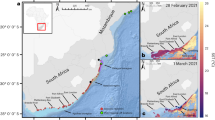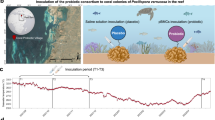Abstract
DURING the past summer large numbers of oysters carrying larvæ were examined in the Plymouth laboratory, and in order not to waste the larvæ, batches were thrown as food into an aquarium tank containing anemones, sea-cucumbers, small fishes, and other smaller marine animals. After throwing the larvæ into the tank, the animals being fed were watched, and it was found that a small school of small grey mullet (Mugil chelo) in the tank came rapidly towards the clouds of larvæ and greedily ate them up. These mullet soon became accustomed to being fed on larval oysters, and quickly appeared from remote portions of the tank when larvæ were thrown in.
This is a preview of subscription content, access via your institution
Access options
Subscribe to this journal
Receive 51 print issues and online access
$199.00 per year
only $3.90 per issue
Buy this article
- Purchase on Springer Link
- Instant access to full article PDF
Prices may be subject to local taxes which are calculated during checkout
Similar content being viewed by others
Author information
Authors and Affiliations
Rights and permissions
About this article
Cite this article
ORTON, J. Mullet as an Enemy of the Oyster. Nature 117, 121–122 (1926). https://doi.org/10.1038/117121c0
Issue Date:
DOI: https://doi.org/10.1038/117121c0
Comments
By submitting a comment you agree to abide by our Terms and Community Guidelines. If you find something abusive or that does not comply with our terms or guidelines please flag it as inappropriate.



